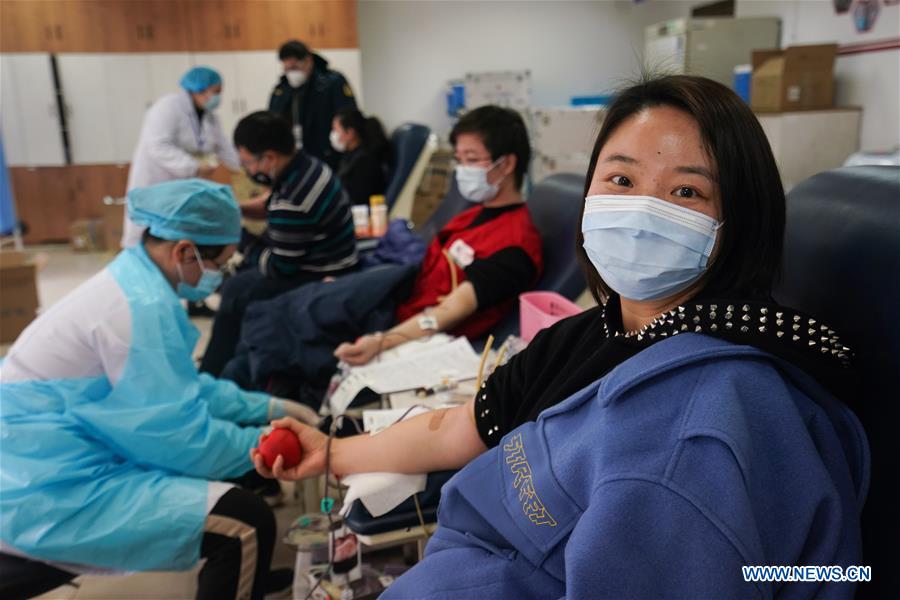World Blood Donor Day more critical than ever
- By Eugene Clark
 0 Comment(s)
0 Comment(s) Print
Print E-mail China.org.cn, June 14, 2020
E-mail China.org.cn, June 14, 2020

This Sunday, the 14th of June, is World Blood Donor Day. The day is especially important at this time, given that as a result of the COVID-19 pandemic and fear of getting out and going to medical facilities, blood donations are at alarmingly low levels in most countries.
Every second in the world, someone will require a donation of blood. Blood donors play a crucial role in all health care systems. While almost half of the population in most countries are eligible to donate blood, typically only a very small percentage of the eligible population do so. Blood donations are required for blood transfusions to treat injuries sustained in accidents and in critical times, such as national disasters. Surgeries, such as orthopedic and heart operations, typically require blood donations. Treatment of diseases, such as cancer, often requires blood donations. Those with inherited blood disorders are another major category.
World Blood Donor Day is about more than encouraging blood donations. This day, promulgated by the World Health Organization (WHO), also seeks to improve the blood collection processes and facilities in countries where facilities are lacking, and hygiene and other standards are required to be met to ensure the blood collection and delivery systems are readily accessible, safe, and efficient.
Not only are blood donations vital for society and helping others, but they are also important for individual health. Blood donations protect the heart by ensuring your blood is not overly thick and sticky. In doing so, heart attack and stroke risks are reduced. Evidence also exists that reducing iron stores in the body, by giving blood, may also reduce oxidation and therefore help prevent cancer. Giving blood also helps to reduce weight, which has important health benefits. Finally, when you give blood, health authorities will screen your blood for HIV, hepatitis, syphilis, etc., and thus you gain valuable feedback about your state of health. In most health care systems, if you give blood, you are given "credit" should you require a blood donation in the future.
Even better than giving blood individually, I would urge departments and organizations to make it a team event. One of my fondest memories was at the University of Canberra, where almost the entire law school faculty and administrators went to give blood together. When we arrived, there was another person in the middle of donating blood. As we lined up to give blood, I proceeded to introduce my colleagues, saying: "I'm Dr. Clark. This is Dr. Burton. This is Dr. Decklin, etc." The donor exclaimed: "Wow, I am so impressed – even the doctors are all giving blood!"
I didn't have the heart to tell her that we were "Doctors of Law," not medical doctors. It was a fun event, and there was much laughter as we consumed our complimentary snack. To further celebrate the event and spread the word, we had T-shirts especially made. On the back, it read: "You just got blood from a lawyer." On the front, it said: "You've just seen a lawyer for free."
I was proud of my colleagues and have been a blood donor for much of my adult life. I am truly saddened by the fact that I no longer qualify to donate blood as a result of medication I now must take. While university students, military personnel, and government employees are typically encouraged to give blood, we now need all eligible citizens to step up and do their part in rebuilding blood supplies so that those who need the gift of life will receive it.
Eugene Clark is a columnist with China.org.cn. For more information please visit:
http://www.formacion-profesional-a-distancia.com/opinion/eugeneclark.htm
Opinion articles reflect the views of their authors only, not necessarily those of China.org.cn.
If you would like to contribute, please contact us at opinion@china.org.cn.





